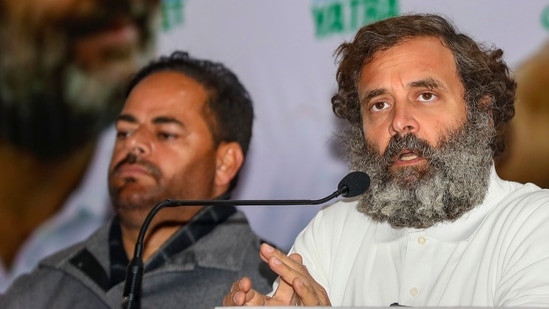'Truth has a nasty habit of coming out': Rahul Gandhi on BBC documentary on PM
The second part of the two-part BBC documentary is set to release in a few hours.
Rahul Gandhi on Tuesday spoke about the BBC documentary on Gujarat 2002 riots, which has triggered a massive row nationally as well internationally. The second part of the two-part documentary - "India: The Modi Question" - is set to be released in a few hours in the United Kingdom. (9 pm Tuesday local time). The Ministry of External Affairs had taken a tough stance on BBC's account of what had happened during the riots in the state of Gujarat when Modi was serving as the Chief Minister, calling it a "propaganda piece".

In response to a question on the controversy, Rahul Gandhi said at a briefing: "If you have read our scriptures, if you read Bhagwat Gita or the Upanishads... you can observe that the truth always comes out. You can ban... you can suppress the press... you can control the institutions, you can use CBI, ED (Enforcement Directorate) and all the stuff but truth is truth."
"Truth shines bright. It has a nasty habit of coming out. So no amount of banning, oppression and frightening people is going to stop the truth from coming out," he further said in an attack on the ruling BJP. Last week, the central government was reported to have blocked the documentary on social media with Twitter taking out several posts. Many opposition leaders had termed the move as "censorship".
The MEA in its response had said the documentary will affect the relations with other nations. BJP leaders have been lashing out ever since its release, saying that the Supreme Court has already decided over the matter. On social media, many users have asked BBC to recall the mixed legacy of controversial leader Winston Churchill.
The issue has been raised internationally too. While UK PM Rishi Sunak last week said he does not agree with the characterisation of PM Modi in it, US State Department spokesperson Ned Price said this week he was not aware of the documentary, refusing to wade into controversy.






